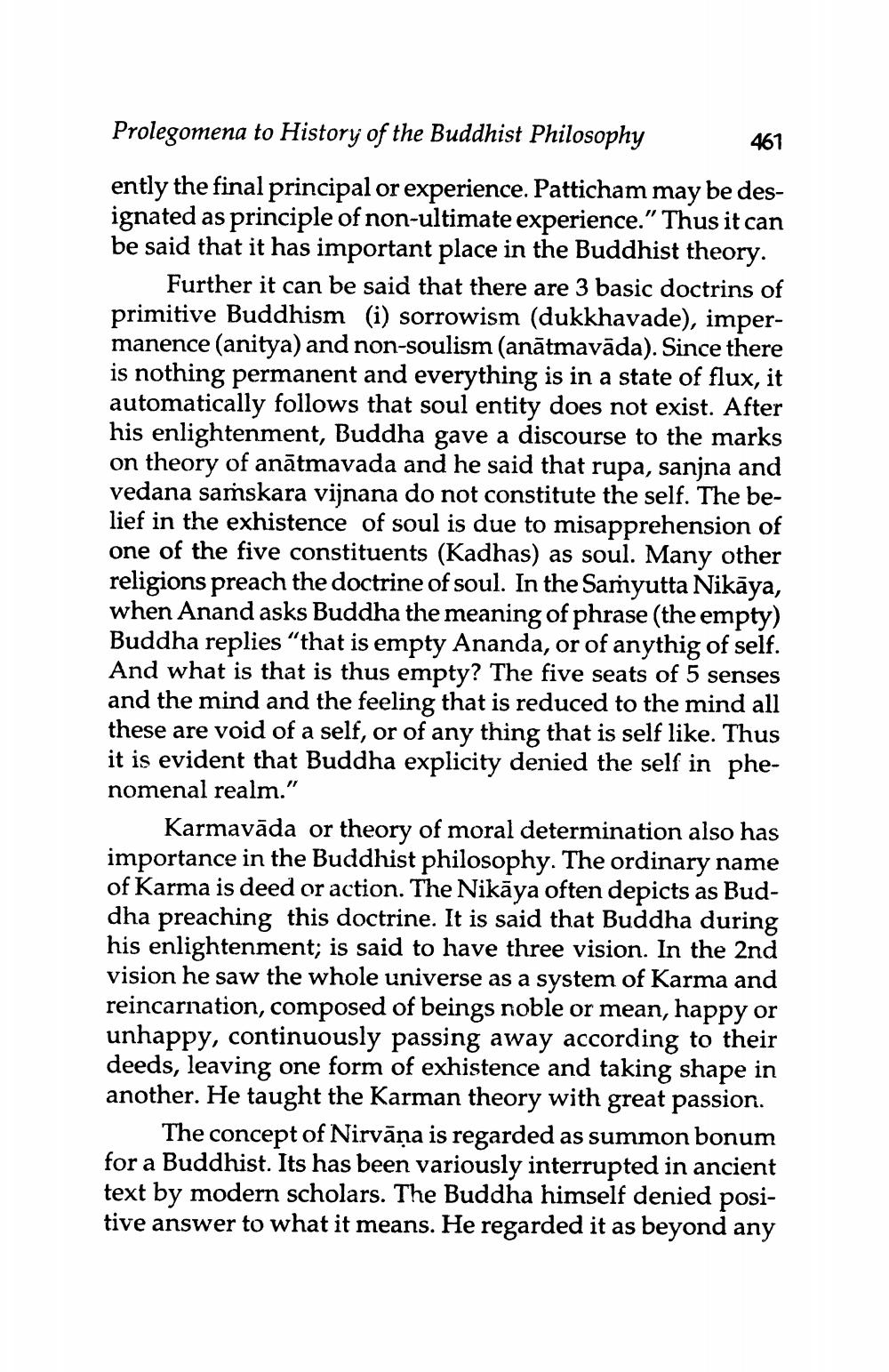________________
Prolegomena to History of the Buddhist Philosophy 461 ently the final principal or experience. Patticham may be designated as principle of non-ultimate experience." Thus it can be said that it has important place in the Buddhist theory.
Further it can be said that there are 3 basic doctrins of primitive Buddhism (i) sorrowism (dukkhavade), impermanence (anitya) and non-soulism (anātmavāda). Since there is nothing permanent and everything is in a state of flux, it automatically follows that soul entity does not exist. After his enlightenment, Buddha gave a discourse to the marks on theory of anātmavada and he said that rupa, sanjna and vedana samskara vijnana do not constitute the self. The belief in the exhistence of soul is due to misapprehension of one of the five constituents (Kadhas) as soul. Many other religions preach the doctrine of soul. In the Samyutta Nikāya, when Anand asks Buddha the meaning of phrase (the empty) Buddha replies "that is empty Ananda, or of anythig of self. And what is that is thus empty? The five seats of 5 senses and the mind and the feeling that is reduced to the mind all these are void of a self, or of any thing that is self like. Thus it is evident that Buddha explicity denied the self in phenomenal realm."
Karmavāda or theory of moral determination also has importance in the Buddhist philosophy. The ordinary name of Karma is deed or action. The Nikāya often depicts as Buddha preaching this doctrine. It is said that Buddha during his enlightenment; is said to have three vision. In the 2nd vision he saw the whole universe as a system of Karma and reincarnation, composed of beings noble or mean, happy or unhappy, continuously passing away according to their deeds, leaving one form of exhistence and taking shape in another. He taught the Karman theory with great passion.
The concept of Nirvāṇa is regarded as summon bonum for a Buddhist. Its has been variously interrupted in ancient text by modern scholars. The Buddha himself denied positive answer to what it means. He regarded it as beyond any




